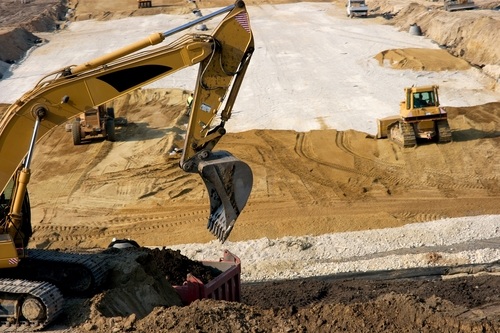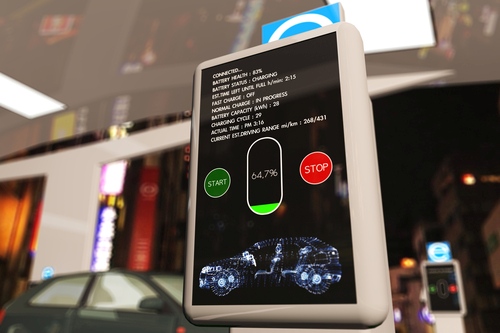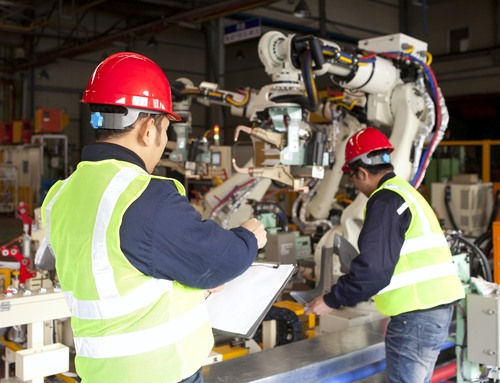Smartphone manufacturer Vivo expands into the Kenyan market with new partner
Chinese smartphone manufacturer Vivo on Monday announced a partnership with African online retailer Jumia to expand its presence in the Kenyan market. In a press release, Arthur Xian, Managing Director of Vivo Kenya, said that the partnership with Jumia confirms Vivo’s commitment to offering customers a wide range of the best and highest quality cell phones at affordable prices.

“Through the new partnership with Jumia, we will be able to offer our customers in Kenya high quality smartphones with extensive features and we hope to meet the needs and requirements of our customers,” Xian continued. With this cooperation, both companies want to increase the market penetration of smartphones in Kenya and advance Jumia’s goal of a “digital Africa”.
Vivo has been on the Kenyan market since July 2019 and has so far sold mainly entry-level devices from its Y-series. In June 2020, Vivo announced that the V19 would be offered in Kenya as a flagship model with outstanding specifications. The technical specifications of the V19 include a 4500mAh battery and a 16 cm diagonal AMOLED display with 1080p resolution and 20:9 aspect ratio. Inside works a Helio P65 CPU as well as 8 GB RAM and 128 GB memory. The camera module on the back side consists of 4 lenses: a 48 MP main camera, 8 MP wide angle, 2 MP macro and a 2 MP depth sensor. The front camera module consists of a 32 MP main camera and an 8 MP ultra wide angle. The V19 model was introduced internationally at the beginning of April this year and will be the first Vivo device with a dual camera in Kenya. The V19 will be an addition to the V-series and a successor to the V17 Pro smartphone, which was introduced in Kenya last year. The market for mobile communication devices and infrastructure in Africa is developing strongly and offers many opportunities. Since 2005, MPR International GmbH has been supporting renowned companies worldwide with certifications for the international market. Our focus is on Africa, Japan, Korea, China and India.
For more information on how CCC certification, the CCC Self-Declaration and voluntary CCAP or CQC certification may affect smartphone products, or for more information about CCC certification in general, the process, and the associated costs, please visit our website and our News Section where you will find current updates twice a week.
Please do not hesitate to contact us for further details and consultation. You can contact us via e-mail, or call us (UK: +44 2071931135, Rest of Europe: +49 69 2713769150, US: +1 773 654-2673).
Please don’t hesitate to also use our chat-window in the bottom right corner if you have any questions. (Please check your browser settings if you can’t see the window)
You can also check out our free CCC-Brochure, which can be downloaded right here as a PDF file or you consult our book (in English) “A Brief Guide to CCC: China Compulsory Certification”, which can be found directly here on Amazon.
Here you can download our brochure about the CCC Self-Declaration.
Here you can download our brochure about the voluntary CCAP or CQC certification.
Chinese company wins contract for road construction in Zambia
The Zambian government has commissioned the China Geo-Engineering Corporation to build feeder roads in four of ten provinces of the country, which is located in the south of the African continent. The executive director of the government’s road agency RDA said that the contract is for the construction of around 1,000 km of road. He explained further details of the project to the Minister of Finance. The main roads in the four provinces North, Northwest, Central Region and Copperbelt will be upgraded to year-round driveable gravel roads.

All construction work under the contract is subject to a results-oriented concept, which gives the company two years to complete a large part of the work. Details of the exact amount of the contract were not disclosed. This is not the first road construction contract in Zambia that has been awarded to a Chinese company. In 2017, CJIC was awarded the contract to build a 320 km highway across Zambia. The project costs amount to 1.2 billion US dollars. The highway-like road connects Zambia with its neighbors, the DR Congo and South Africa, and runs through the Copperbelt mining region where the copper that gives the province its name is mined.
Zambia is Africa’s second largest copper producer and Ndola is the capital of the Copperbelt province. In addition to road construction, China has already invested in Zambia’s other infrastructure. Concrete projects include a 750 megawatt hydroelectric power plant and various activities in the agricultural and mining sectors. The access to the African continent is a special challenge. The numerous markets in Africa are developing strongly and offer many opportunities. Since 2005, MPR International GmbH has been supporting renowned companies worldwide with certifications for the international market. Our focus is on Africa, Japan, Korea, China and India.
For more information on how CCC certification, the CCC Self-Declaration and voluntary CCAP or CQC certification may affect your company, or for more information about CCC certification in general, the process, and the associated costs, please visit our website and our News Section where you will find current updates twice a week.
Please do not hesitate to contact us for further details and consultation. You can contact us via e-mail, or call us (UK: +44 2071931135, Rest of Europe: +49 69 2713769150, US: +1 773 654-2673).
Please don’t hesitate to also use our chat-window in the bottom right corner if you have any questions. (Please check your browser settings if you can’t see the window)
You can also check out our free CCC-Brochure, which can be downloaded right here as a PDF file or you consult our book (in English) “A Brief Guide to CCC: China Compulsory Certification”, which can be found directly here on Amazon.
Here you can download our brochure about the CCC Self-Declaration.
Here you can download our brochure about the voluntary CCAP or CQC certification.
China publishes national standard for wireless charging of vehicles
The ability to charge an electric vehicle without cables and plugs has long been more than just a customer wish. The Chinese automotive industry has also been working on a standardized solution for several years. Now a national standard for wireless charging of electric vehicles has finally been announced. The standard stipulates that every new electric vehicle can use the charging stations and, as a result, the standard should become widespread quickly.

The new standard is based on WiTricity technology, which uses electromagnets for charging and has the same efficiency and duration as a conventional charging station with cable and plug. In addition to the added comfort, the technology is also seen as a milestone for the automatic recharging of future self-driven vehicles such as cabs or delivery vehicles. The developers behind WiTricity have worked closely with the relevant Chinese authorities such as the China Electric Power Research Institute (CEPRI), China Automotive Technology and Research Center (CATARC) and China Electricity Council (CEC) to develop the new standard.
The patented technology is based on China’s national industry standards (GuoBiao or GB) for wireless charging and was approved and officially announced by China Electricity Council (CEC) in May 2020. Current or future international standards such as SAE J2954, ISO 19363 and IEC 61980 were taken into account during the development. The Chinese automotive market is considered to be the fastest changing in terms of the transition from combustion engines to electric motors. The car manufacturers are therefore looking for ways to win new customers. A wireless charging option on a new vehicle could be a key argument for a purchase. WiTricity has licensed its technology to two leading charging station manufacturers, Zhejiang VIE Science & Technology and Anjie Wireless Technology (Suzhou) as well as several OEM customers. Anjie recently demonstrated the automatic parking and wireless charging of a Xpeng Motor electric vehicle, providing a glimpse into the future of electric transportation.
CCC stands for China Compulsory Certificate. The CCC certificate was introduced in 2002 and applies to both imported and Chinese products. The CCC certification of a charging station for the Chinese market can prove to be a complex project that requires professional support in all phases. For several years MPR China Certification GmbH has been entrusted with large CCC projects of the vehicle manufacturers Lotus, Tesla and Bugatti. We would be pleased to advise you without obligation about the scope and requirements of a China CCC certification.
Please do not hesitate to contact us for further details and consultation. You can contact us via e-mail, or call us (UK: +44 2071931135, Rest of Europe: +49 69 2713769150, US: +1 773 654-2673).
Please don’t hesitate to also use our chat-window in the bottom right corner if you have any questions. (Please check your browser settings if you can’t see the window)
You can also check out our free CCC-Brochure, which can be downloaded right here as a PDF file or you consult our book (in English) “A Brief Guide to CCC: China Compulsory Certification”, which can be found directly here on Amazon.
Here you can download our brochure about the CCC Self-Declaration.
Here you can download our brochure about the voluntary CCAP or CQC certification.
China’s automotive industry continues to be of global importance
According to a new report by Fitch Group analysts, manufacturers and suppliers outside China are looking for alternative locations, but the size and importance of the Chinese market is simply too tempting. The impact of the global Covid 19 outbreak has prompted some automakers to rethink their dependence on China as a manufacturing base. However, the report also mentions that no manufacturer is planning to close its facilities in China. It would be more a question of spreading production and suppliers across several countries rather than putting all their eggs in one basket, in this case China.

Despite the possible withdrawal of some suppliers from China and production relocations to other countries, the Chinese automotive market remains very attractive and still occupies the top position worldwide in terms of sales of new vehicles. The figures from the Fitch report confirm this. China receives top marks for attracting companies and conducting business activities, as well as for its good infrastructure and strong consumer purchasing power. At 88 percent, the share of new cars in the total number of registered vehicles is also significantly higher in China than in other countries.
However, the Fitch report also sees weaknesses in China. For example, the growth indicator for new car sales, based on the next five years, is relatively low at 7.3 out of a possible 100 points. The average for the Asian region is 42 points, indicating growth opportunities for automakers in emerging markets such as Vietnam, Thailand and Indonesia. For the economic risks, especially with regard to the crisis caused by Covid-19, China again scores very well. In a separate report by Fitch, published in May 2020, China scores more than 80 out of a possible 100 points for indicators of short and long-term economic risks. It can therefore be assumed that China will continue to provide a solid framework for car manufacturers and their sales activities in the future. If you need CCC certification in the automotive sector, China Certification is an excellent partner for you. We have been advising leading automotive suppliers and vehicle manufacturers on their CCC certifications for years.
For more information on how CCC certification, the CCC Self-Declaration and voluntary CCAP or CQC certification may affect your company, or for more information about CCC certification in general, the process, and the associated costs, please visit our website and our News Section where you will find current updates twice a week.
Please do not hesitate to contact us for further details and consultation. You can contact us via e-mail, or call us (UK: +44 2071931135, Rest of Europe: +49 69 2713769150, US: +1 773 654-2673).
Please don’t hesitate to also use our chat-window in the bottom right corner if you have any questions. (Please check your browser settings if you can’t see the window)
You can also check out our free CCC-Brochure, which can be downloaded right here as a PDF file or you consult our book (in English) “A Brief Guide to CCC: China Compulsory Certification”, which can be found directly here on Amazon.
Here you can download our brochure about the CCC Self-Declaration.
Here you can download our brochure about the voluntary CCAP or CQC certification.
Increased Requirements for Pre-Shipment Inspections of Used Machines for Export to China
As reported in July, exports to China have been rising sharply since June – this also affects used machines, for whose approval in China an inspection must be carried out prior to shipment.

There has been an increase in problems with pre-shipment inspections (PSI) recently. Part of the problem can be attributed with the Corona pandemic, where there are increased requirements by the authorities for hygienic safety measures in the plants to protect the inspectors. Companies must provide protective means such as disinfectants, but also ensure that the inspector can thoroughly examine the machines to be shipped. Of course, inspectors must also comply with the safety regulations of the companies to be visited. If you are considering the need for a pre-shipment inspection, please make sure that the inspectors have been sufficiently informed ahead of time of any company safety requirements.
Other common problems that can occur during the inspection are already packed machines or insufficiently prepared machines. There are clear safety and quality requirements for used machines to be imported into China, just as there are for new machines. Machines may not contain certain products or components (such as monitors, pressure vessels, certain materials, etc.) and must be clean and in good condition. Faults or defects must have been corrected and certain safety precautions must be in place to pass inspection. Very old machines or those with significant signs of use should be refurbished as a precaution.
It also happens from time to time that the machines have already been pre-packed. While it is irrelevant for the pre-shipment inspection whether the machine is in operation or has been disassembled, and also irrelevant where the inspection is to take place (it can take place at the operator’s premises or in a logistics center, for example), an inspection is not possible if not all parts and areas of the machine are visible. Under no circumstances should the machines be already packed, because even if the packaging can be opened, it may not be possible to open the machine or to view the sides of the machine facing away from the opening.
Although the possibilities to monetize a used machine have improved, companies have to prepare themselves for increased requirements, especially due to the still existing corona risk. More detailed information on the requirements for pre-shipment inspections can be found on our pages or by calling us.
Here you can find information about CCIC Pre-Shipment Inspection (PSI). Please do not hesitate to contact us for further details. You can contact us by email or call us at +49 69 271 37 69 150 (for Europe) or +1 773 654 2673 (for USA).
Please don’t hesitate to also use our chat-window in the bottom right corner if you have any questions. (Please check your browser settings if you can’t see the window)



